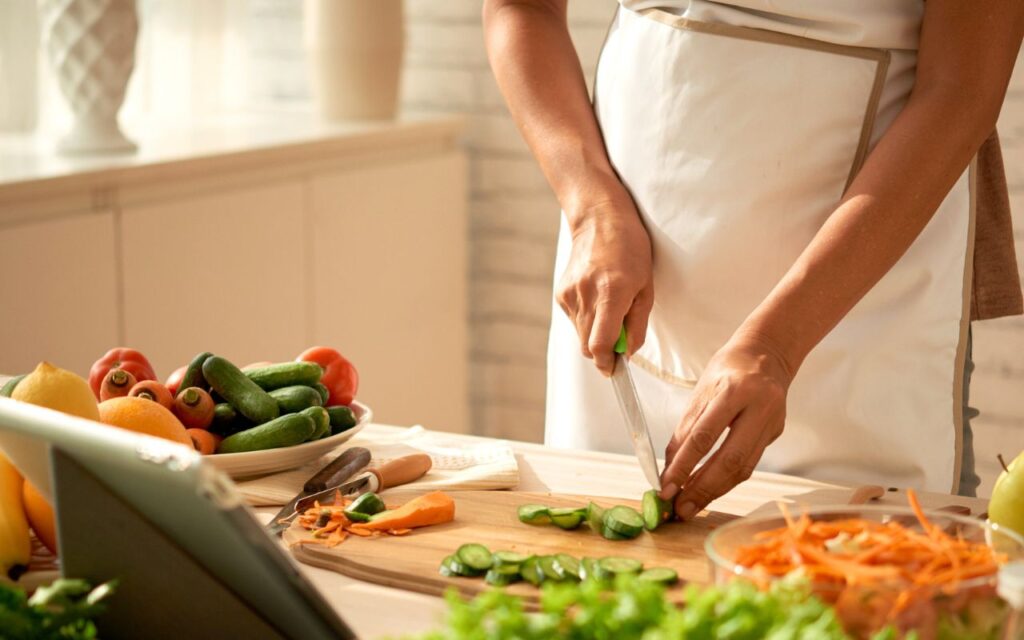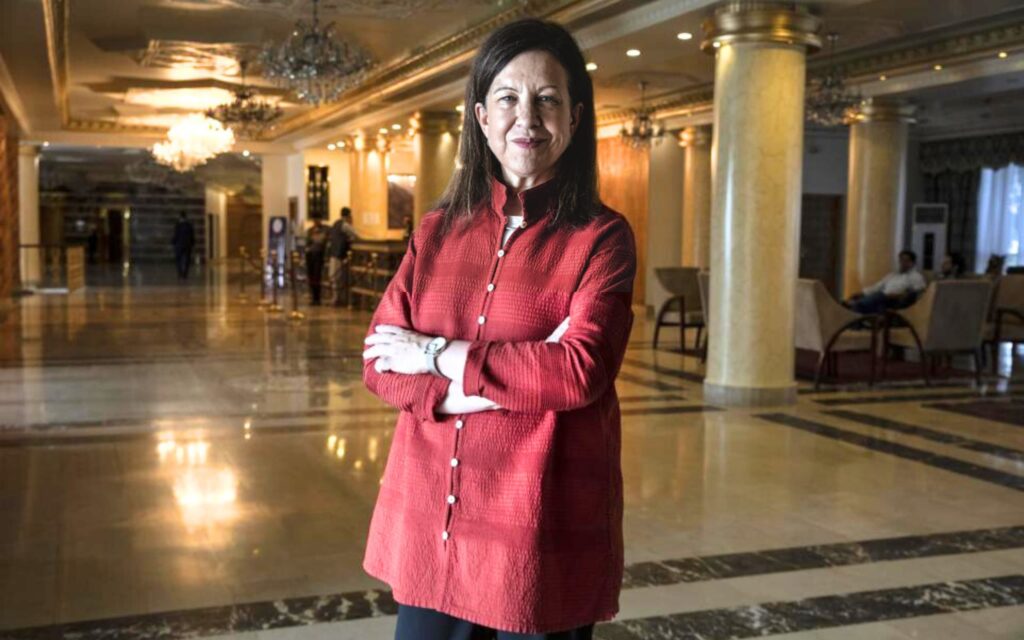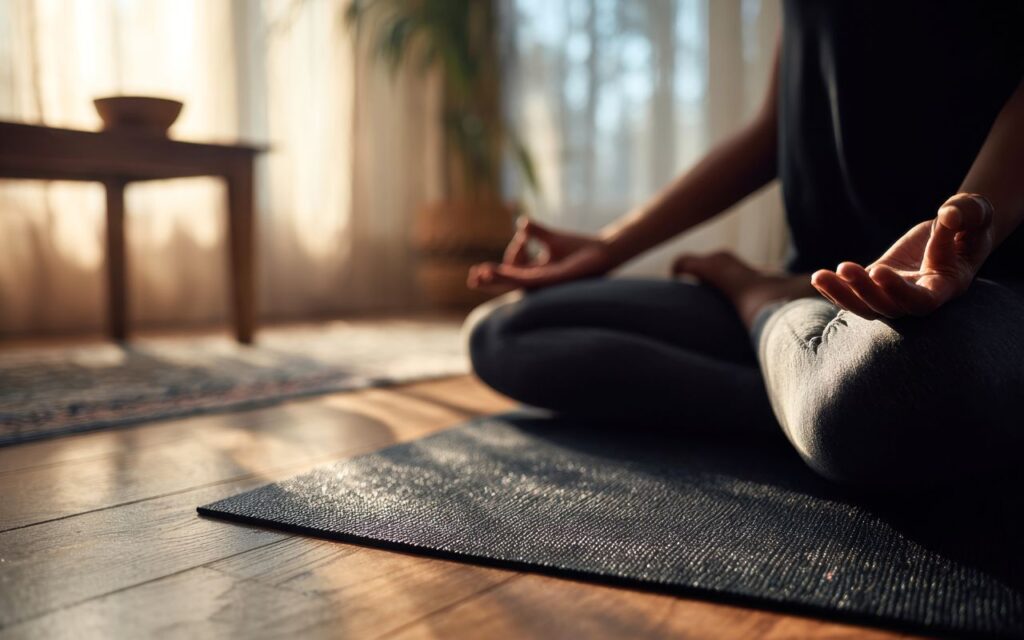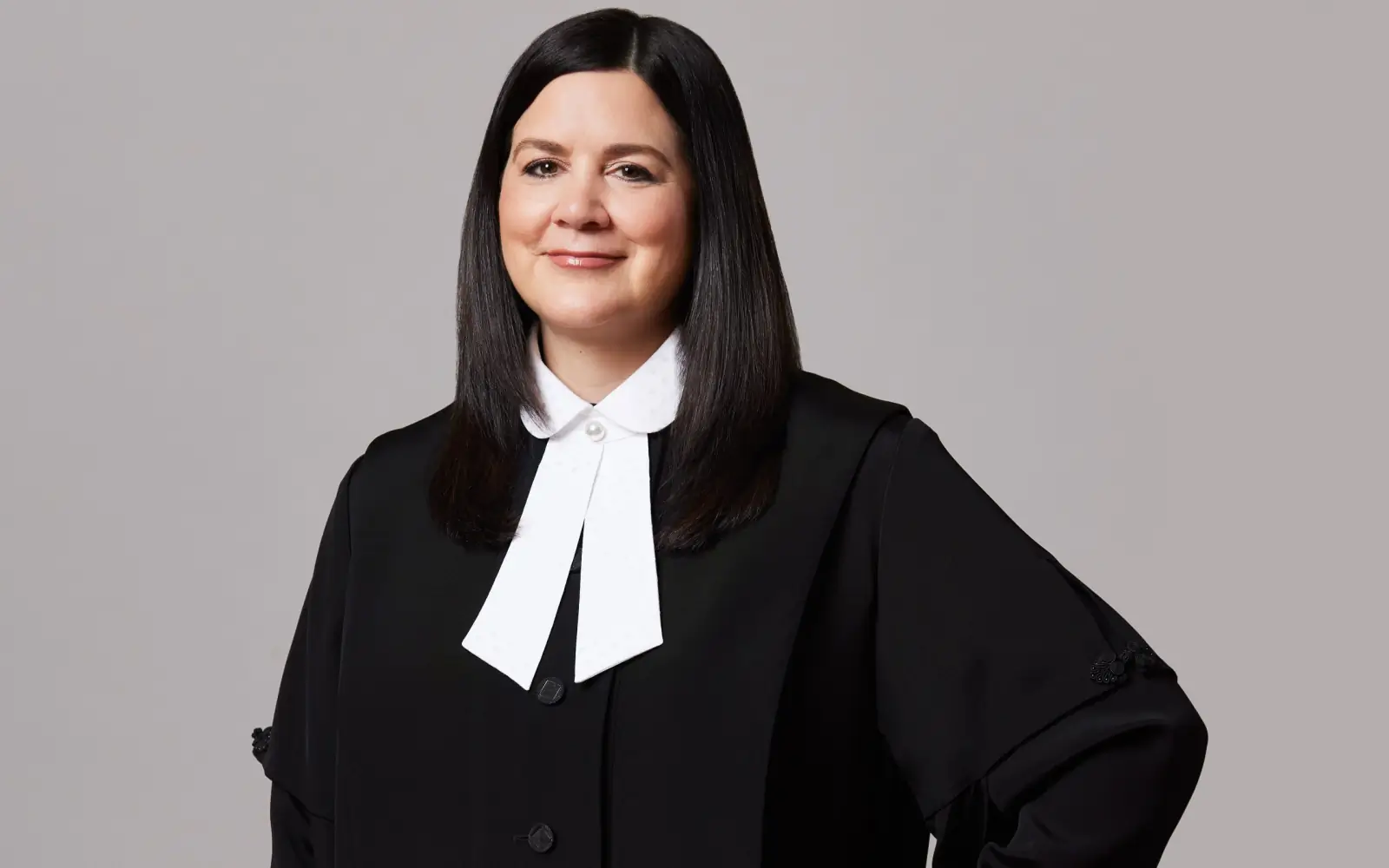
Adjusting to a new role
Jennifer Stewart: Being on the Supreme Court is a huge adjustment both personally and professionally. How did your family adjust to your new role?
Michelle O’Bonsawin: It’s been quite an adjustment because when I first joined the Supreme Court, my oldest moved out of town to go to school; my youngest is still in high school. So there was an adjustment because even though I was a trial judge, normally I was the go-to if there was an issue with the kids.
Now their dad is the go-to, but I have to say it doesn’t always work. I’m working even longer hours than I had in the past, so of course there is that impact on my family life.
I would never have applied to the Supreme Court when my kids were younger. I wanted them to be at an age where they were really independent, which is where they are at now.
Michelle O’Bonsawin
Catherine Clark: Do you resent that impact? How have you adjusted to that?
Michelle O’Bonsawin: I don’t resent it. I would never have applied to the Supreme Court when my kids were younger. It was always important that if this was going to happen, I wanted them to be at an age where they were really independent, which is where they are at now.
I think that has made quite the difference. It’s an adjustment, but I have to say they’re proud of saying that their mom’s a judge in the Supreme Court, and my husband is also very proud. So I think in the end, it’s something very positive.
Jennifer Stewart: What do you remember from the day that you got the call from the Prime Minister?
Michelle O’Bonsawin: I remember vividly where I was. I was in the kitchen talking to my husband at around dinner time. My cell phone rang and it wasn’t a number that I recognised but I answered anyway. It was someone from the Prime Minister’s Office who was inviting me to meet with the Prime Minister the next evening. When I hung up, I started crying.
My husband called our children upstairs and I remember all of us dancing around and jumping in my kitchen to celebrate.
Michelle O’Bonsawin
And I got some great advice from one of my colleagues, who said, “You should keep a journal of all these moments, because there’s going to be so many things that are going to happen, you’re going to forget little details.” And I have for certain events, which has helped me because it was such a whirlwind in those first couple of weeks.
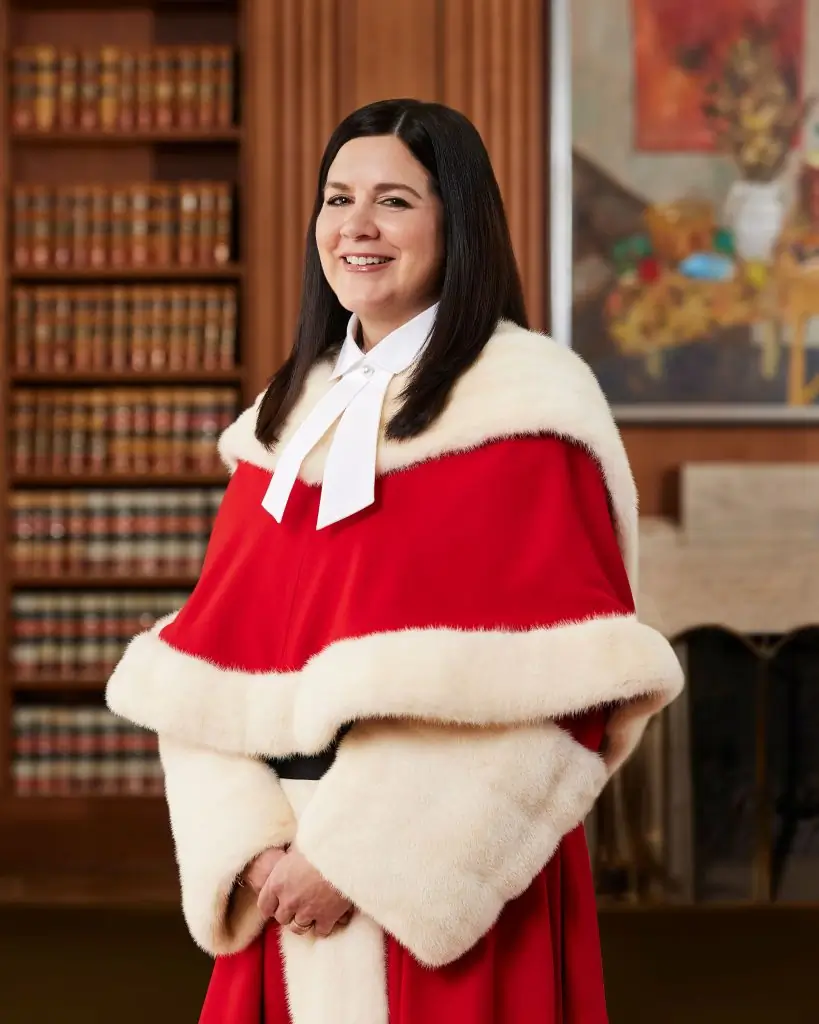
The importance of reflection
Catherine Clark: Did you think that this would happen when you were a kid? Was it something that you wanted or planned for?
Michelle O’Bonsawin: No. I come from a blue collar background, but I had always wanted to be a lawyer even though there weren’t any professionals in my family. I didn’t even consider that being a judge was possible until I started law school.
Someone from the Commissioner’s office came in to explain to us what the process. And someone in my class lifted their hand and said, “Well, what’s the perfect candidate?” And the Commissioner said, “Well, it’s a fluently bilingual Aboriginal woman.” And I thought, “Oh, my God, that’s me.” That started the ball rolling for me to think that it was a possibility.
Jennifer Stewart: Do you take any time to reflect on how far you’ve come professionally?
Michelle O’Bonsawin: I actually sat down after September 1 and journaled about what I thought of my first year on the Supreme Court. I’ve done that in the past, but I thought for me to reflect and make my own personal notes about it was something that was worthwhile. And it made me smile.
I’m proud of what I’ve accomplished.
Michelle O’Bonsawin
Catherine Clark: What would you list as some of the highlights of your first year?
Michelle O’Bonsawin: For the welcoming ceremony, I hosted a private event at the Court, and I had invited a young man I had gotten to know in the past who played the flute and was a great Indigenous dancer.
To see everyone’s reaction to his performance and to hear the drumming and traditional music in the Grand Hall was a momentous event for me, because it’s not something that had happened in the past.
And also stepping back a bit, when I was sworn in, it was important for me to be sworn in on an eagle feather. That hadn’t happened in the past, but they worked with an elder who I had recommended, a Gilbert Whiteduck from Kitigan Zibi, who gifted the court with a feather that I named Jacqueline after my grandmother. For me, that was something very special.
And just the first time you walk into the Court and the doors open and the Court staff say “La Couer,” that is a really proud moment. I really felt proud that I had achieved this for me and my family, but also for the Indigenous population in Canada.
Being in the public eye
Jennifer Stewart: I think your appointment is momentous for our nation. You are the first Indigenous person to serve on the Supreme Court. That means you inspire a lot of people, but it also means you shoulder a burden of responsibility. How do you absorb that burden?
Michelle O’Bonsawin: I’m lucky because I have a really good support system. So my husband has always been very supportive of me and my career. I have really a great staff here. And wonderful mentorship, the Chief Justice has been really good, and helped me through my journey in the first year here.
That support made it much easier to be the first because you are under a microscope in that position.
Hopefully this is going to inspire young Indigenous women and young Indigenous people to think that they can come from either a remote community or any other Indigenous community and make it all the way up to the Supreme Court.
Michelle O’Bonsawin
Catherine Clark: When you talk to young people, what do you say to them about your path and about their potential path?
Michelle O’Bonsawin: I was fortunate in the last year to meet with students at universities and schools. I told them it’s important to believe in a dream, and to do your best effort because if you believe, you’re passionate, and you work hard at it, anything is possible. I told them about the guidance counselor in grade 12 who said I would likely not become a lawyer because of where I lived, and I said, “Just watch me.”
I’m proof that it can happen.
Michelle O’Bonsawin
So, I also tell the teachers to be mindful of what you’re telling our youth, because it could have a direct impact on their future. Try to inspire them to think anything is possible.
Safety first
Jennifer Stewart: A lot of people associate practicing law with dotting I’s and crossing T’s, but you have a very interesting story of being in a closet. Are you able to share that with us?
Michelle O’Bonsawin: Yes, when I was at Canada Post Corporation, I did extensive labour and employment cases throughout Canada. One Ontario case I’ll never forget: the person had been terminated, and we were asked to evacuate the conference room because they thought the person might come back with a gun.
The union didn’t want to stop the momentum of the discussions we’d had, so six or seven of us ended up negotiating in a closet in this hotel. Once we had come to a settlement, the police escorted us to our cars to leave the facility. That was quite a unique experience.
Catherine Clark: Do you worry about your security now, in a fairly volatile world where you do have a big, public role that some people may not always agree with?
Michelle O’Bonsawin: Yes, I do. I support our Chief Justice’s initiative that we be out in the community to talk to Canadians, to demystify our work. Because of that, I travel a lot through Canada. I always ensure that there is security when I’m going to events, because these are public events where there are announcements prior to my arrival, and anyone could show up.
We have a very good security team at the Court that does good risk assessments; I find that alleviates certain fears. You don’t just go into any situation, you’re more cognizant.
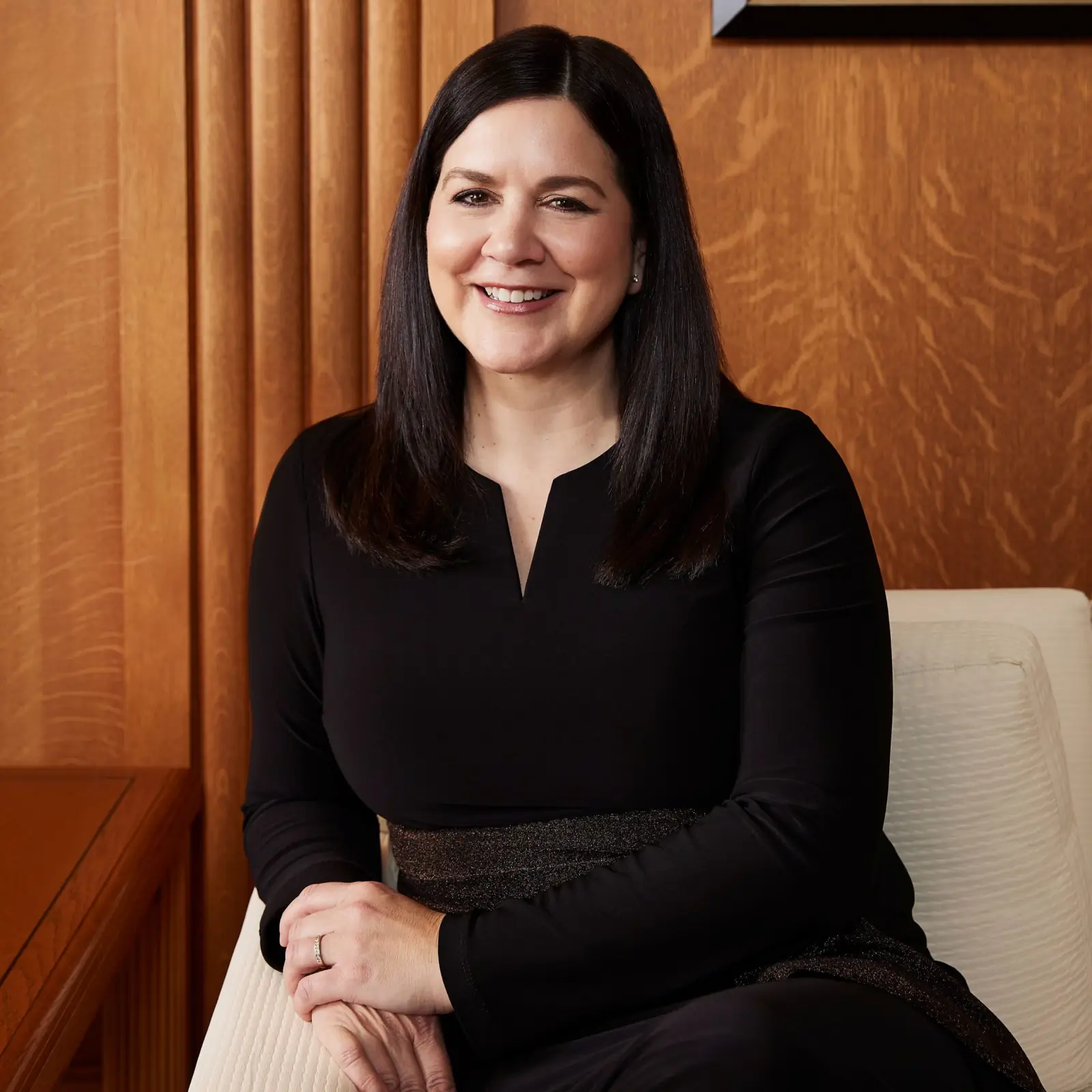
Being positive, mindful, and respectful
Jennifer Stewart: There’s a lot of pushback against institutions, particularly right now: a sense of distrust and anger that seems to permeate a lot of conversations both here and globally. What keeps you positive and forward-focused?
Michelle O’Bonsawin: I think the Supreme Court of Canada does very value-added work for Canadians. We set the standard of the law throughout all of our jurisdiction.
Everyone looks to us to make sure that there’s a good understanding and development of our case law in Canada. We’ve been advised recently that Canadians actually see the Supreme Court of Canada in a positive light. So, that is always very encouraging.
I think the Supreme Court of Canada does very value-added work for Canadians.
Michelle O’Bonsawin
Catherine Clark: You have also talked openly about being really mindful about how you treat others. Why is that so important to you?
Michelle O’Bonsawin: It’s just general respect. You want respect, but you have to give respect. I’ve taught my children to be respectful toward others, and that was taught to me by my family and elders. It’s just an appropriate way to be a good human being.
You want respect, but you have to give respect.
Michelle O’Bonsawin
Jennifer Stewart: What’s the non-negotiable that you do for yourself to keep mentally sane and focused and able to function at the high level that you’re expected to?
Michelle O’Bonsawin: I like to travel. I like to paint and also to do some glass work at times, either by myself or with one of my children. These are things that are really important to me and help me keep my mind flowing well. We need to have time to ourselves outside of the work environment. Doing these things are very helpful for me.
Giving, and getting, good advice
Catherine Clark: What’s the most valuable piece of advice that you’ve been given? And what advice do you give to those you mentor?
Michelle O’Bonsawin: The first one is you only have one reputation, make sure you guard it well and don’t lose it, because if you lose it, you don’t get it back. And it’s important to always be courteous and respectful because at the end of the day, you don’t know who’s going to talk about the situation to others.
You only have one reputation, make sure you guard it well and don’t lose it.
Michelle O’Bonsawin
And the other thing is always prepare your file like it’s your first file. If I know my case inside out, that is always going to be beneficial to me. For me, preparation is really the key to success.
I’ve had great mentorship throughout my career, and I’ve mentored others, at all different levels. I just think it’s important to share what I can with others — I learn from them and they learn from me.


